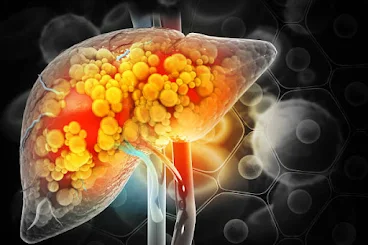Fatty Liver Symptoms, Treatment, Causes, and Diet
Fatty liver disease, also known as hepatic steatosis, occurs when fat builds up in the liver. This condition can lead to liver inflammation and damage if not managed properly. Understanding the symptoms, treatment options, causes, and recommended diet is crucial for those affected by or at risk of fatty liver disease.
What is Fatty Liver?
Fatty liver disease occurs when more than 5% to 10% of your liver's weight is fat. It is classified into two main types:
1. Non-Alcoholic Fatty Liver Disease (NAFLD): Occurs in people who drink little to no alcohol. It is often linked to obesity, diabetes, and high cholesterol.
2. Alcoholic Fatty Liver Disease (AFLD): Caused by heavy alcohol consumption. This form of fatty liver can progress to more severe liver diseases, such as cirrhosis.
Symptoms of Fatty Liver
Fatty liver often has no symptoms, especially in the early stages. However, as the condition progresses, you may experience:
- Fatigue: A persistent feeling of tiredness and lack of energy.
- Discomfort in the Upper Right Abdomen: A dull ache or fullness in the upper right side of the abdomen where the liver is located.
- Weight Loss: Unintentional weight loss may occur.
- Weakness: Generalized weakness and feeling unwell.
- Jaundice: In advanced cases, yellowing of the skin and eyes can occur, indicating severe liver damage.
- Swelling: Swelling in the abdomen (ascites) and legs may develop in severe cases.
Causes of Fatty Liver
Several factors can contribute to the development of fatty liver:
- Obesity: Excess weight is a leading risk factor for fatty liver, as it promotes fat accumulation in the liver.
- Diabetes: High blood sugar levels can increase fat deposition in the liver.
- High Cholesterol and Triglycerides: Elevated levels of fats in the blood contribute to liver fat.
- Metabolic Syndrome: A cluster of conditions, including high blood pressure, high blood sugar, and abnormal cholesterol levels, can increase the risk of fatty liver.
- Alcohol Consumption: Excessive drinking is the primary cause of AFLD.
- Poor Diet: Diets high in sugar, refined carbohydrates, and unhealthy fats can lead to fat buildup in the liver.
- Rapid Weight Loss: Losing weight too quickly can cause fatty liver due to fat mobilization.
- Medications: Certain medications, such as corticosteroids and some chemotherapy drugs, can lead to fatty liver.
Treatment for Fatty Liver
There is no specific medication for fatty liver disease. Treatment focuses on managing the underlying causes and reducing liver fat:
- Weight Loss: Gradual weight loss through a combination of diet and exercise is the most effective way to reduce liver fat. Aim for a weight loss of 7-10% of your body weight.
- Exercise: Regular physical activity helps reduce fat in the liver and improves overall liver function. Aim for at least 150 minutes of moderate-intensity exercise per week.
- Medications: While there is no specific medication for fatty liver, treating associated conditions like diabetes and high cholesterol with appropriate medications can help.
- Avoid Alcohol: For those with AFLD, stopping alcohol consumption is crucial. For those with NAFLD, it's advisable to limit alcohol intake.
- Manage Diabetes and High Cholesterol: Keeping blood sugar and cholesterol levels in check can help reduce liver fat.
Diet for Fatty Liver
Diet plays a significant role in managing and preventing fatty liver disease. Here are some dietary recommendations:
- Focus on Whole Foods: Incorporate more fruits, vegetables, whole grains, and lean proteins into your diet. These foods are nutrient-dense and low in unhealthy fats.
- Reduce Sugar and Refined Carbs: Cut back on sugary foods and drinks, as well as refined carbohydrates like white bread and pasta, which can increase liver fat.
- Healthy Fats: Choose healthy fats such as those found in avocados, nuts, seeds, and olive oil. These fats are beneficial for liver health.
- Limit Saturated and Trans Fats: Avoid foods high in saturated fats (such as red meat and full-fat dairy) and trans fats (found in many processed and fried foods).
- Incorporate Omega-3 Fatty Acids: Omega-3s, found in fatty fish like salmon and flaxseeds, can help reduce liver fat.
- Stay Hydrated: Drink plenty of water throughout the day to support liver function.
- Small, Frequent Meals: Eating smaller meals more frequently can help manage blood sugar levels and reduce fat accumulation.
Conclusion
Fatty liver disease is a growing concern, but it can be managed and even reversed with lifestyle changes, including a healthy diet, regular exercise, and weight management. Recognizing the symptoms early and addressing the underlying causes is crucial to preventing the progression of fatty liver disease and maintaining overall liver health.
-


